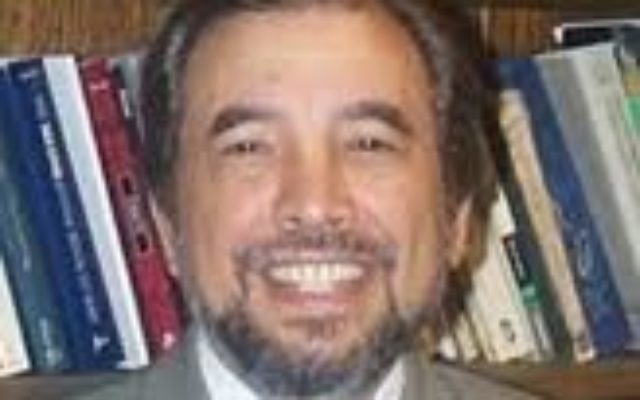We Must Choose: Light or Darkness
By Rabbi Mark Hillel Kunis | Congregation Shaarei Shamayim
Among the stories in the news recently was the killing of Cecil the lion in Zimbabwe by American dentist Walter Palmer. Palmer lured the lion outside its legally protected habitat, shot it with a crossbow, and stalked the maimed lion for 40 hours until finally gunning it down, skinning it and beheading it.
Animal rights advocates were rightly horrified, and their protests didn’t fall on deaf ears. Tzar baaley chayim, causing unnecessary pain to animals, is one of the 7 Laws of Noah that the Torah says are incumbent upon all mankind to observe.
But are animal rights the same as human rights, as some animal rights advocates proclaim? Of course not. So what is it that distinguishes us from the rest of G-d’s creatures? For me, it’s the ability to choose.
Making choices is what makes us most human. As the Torah (Deuteronomy 11:26) teaches: “R’ey, Anochi noteyn lifneychem hayom, b’racha uklala” (“See, I have set before today a blessing and a curse”). The Torah (Deuteronomy 30:19) later implores us: “Uvacharta bachayim” (“Therefore, choose life”).
What does it mean to choose life, to choose blessings or curses? Can we choose to be blessed with a healthy baby or a happy marriage? And who would choose to contract a terrible illness or die? What is the Torah saying to us when it calls upon us to choose? Choose what?
We can’t always choose what will happen to us, much of which is simply out of our control. But we can choose how we will respond to what happens to us and, in so doing, bring blessings or curses into our lives.
Let me illustrate with the story of two members of a former congregation. The first suffered a serious stroke that left him paralyzed on his left side. He cried to me that he could no longer write — something he loved to do — because he was left-handed. This was before the widespread use of computers and voice-recognition software.
I suggested he try using his right hand to type. I assured him that with time and training he could do it. But he assured me he couldn’t. And he was right.
He died three years later and never wrote a word, never left his wheelchair, sat embittered in his den, angry at G-d, angry at his wife for having died years earlier, angry at his friends for not coming to visit him more often to listen to his groaning and complaining.
“See, I have set before you today a blessing and a curse” — light and darkness. He chose darkness and lived his remaining years embittered, cursing the night.
My other congregant was sprayed with a strong chemical in his paint factory that left him blind in both eyes. If anyone had reason to curse the darkness, he did. He had to retire from the business he created and loved, and this formerly very independent man needed constant attention.
But in becoming blind, he came to realize the ways in which blind people in our society experienced discrimination: how difficult it was to access many buildings, to ride on city buses, to get the attention of people in stores and restaurants. He noticed how many laws designed to help the disabled were poorly enforced.
Rather than sit in darkness, he went out into the light and became a champion for human rights for the blind and deaf and disabled. He sat on one commission after another at the city, regional and state levels. He became a common figure in the halls of Congress.
“See, I have set before you today a blessing and a curse” — light and darkness. He chose light and saw more than many of us who are sighted see.
“Today” means today and every day G-d sets this choice before each one of us. Who doesn’t hurt somewhere? Who doesn’t have a reason to complain about something? We may not choose to be in pain, but we can choose how we respond to our pain. We can allow our aches and complaints to overwhelm us and drown us in darkness — or we can look beyond our hurts, see our circumstances as opportunities for the growth of our souls, and channel the energy we would spend in complaining and crying into ways to benefit ourselves and others. It’s a choice, and it’s ours to make.
In Dr. Viktor Frankl’s book “Man’s Search for Meaning,” he describes how he was marched into a Gestapo courtroom with everything away from him — his family, his home, his freedom. They had shaved his head and stripped his clothing off his body.
He stood before the Nazi high command under the glaring lights, being interrogated and falsely accused. He was destitute — a helpless pawn in the hands of brutal, sadistic men. He had done nothing to deserve his fate. He had been given no choice in being brought to this miserable point in his life. He had nothing.
But that wasn’t exactly true. For he suddenly realized there was one thing no one could take from him: his own attitude.
He could choose whether to be bitter or hopeful. He could choose whether to surrender or fight. He could choose whether to give up or to go on.
Dr. Frankl chose to affirm life and struggle against his burdens — and in so doing he never gave in to the darkness. He lived where others perished.
My friends, Rosh Hashanah is upon us. It’s time to begin to seriously think about our choices. “See, I have set before you today a blessing and a curse” — light and darkness. Today we have a choice. Like Viktor Frankl and the blind man, the Torah implores us: “Bacharta bachayim.”
Let us always choose to live in the light and choose life. Amen!





